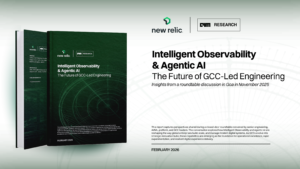Shutterstock announces plans to broaden its collaboration with OpenAI, leveraging training data for AI models and advancing generative AI capabilities.
Shutterstock revealed today its intention to extend its current partnership with OpenAI, aimed at providing the startup with crucial training data for its AI models. Over the course of the next six years, OpenAI will gain access to a variety of data from Shutterstock, encompassing images, videos, music, and associated metadata. In return, Shutterstock will receive “priority access” to OpenAI’s latest technological advancements and innovative editing features, facilitating image transformation within Shutterstock’s extensive stock content library.
Paul Hennessy, CEO of Shutterstock, expressed enthusiasm about the expanded collaboration, stating, “The renewal and significant expansion of our strategic partnership with OpenAI reinforces Shutterstock’s commitment to driving AI tech innovation and positions us as the data and distribution partner of choice for industry leaders in generative AI.”
Empowering Mobile Users with Generative AI
Additionally, Shutterstock disclosed plans for OpenAI to collaborate in bringing generative AI capabilities to mobile users through Giphy, the popular GIF library recently acquired by Shutterstock from Meta. This move underscores Shutterstock’s dedication to leveraging AI technologies to enhance user experiences across various platforms.
Navigating Complex Relationships
The relationship between stock content galleries like Shutterstock and generative AI startups has been marked by tension and legal disputes. Generative AI, particularly in the realm of art creation, presents challenges to stock galleries, as it has the potential to generate customizable stock images rapidly.
Moreover, contributors to stock image galleries, including artists and photographers, have raised concerns about potential exploitation of their work by generative AI startups without adequate credit or compensation.
Addressing Legal Challenges
Legal battles have ensued in this arena, with Getty Images, for instance, suing Stability AI, the developers of Stable Diffusion, for allegedly scraping its copyrighted content. Artists have also taken legal action against AI art platforms, alleging copyright violations.
While some experts argue that training AI models on public images, including copyrighted ones, may fall under fair use doctrine in the U.S., the matter remains contentious and unresolved.
Shutterstock’s Approach
In contrast to some competitors, Shutterstock has embraced generative AI, partnering with OpenAI to launch an image creator powered by OpenAI’s DALL-E 2. The company has also secured licensing agreements with prominent tech firms like Nvidia, Meta, and LG to advance generative AI capabilities across various domains, including 3D models, images, and text.
Furthermore, Shutterstock has taken steps to address concerns of artists on its platform by establishing a “contributor fund,” offering compensation for their role in training generative AI models and providing ongoing royalties tied to licensing for newly generated assets.
Shutterstock’s expanded collaboration with OpenAI underscores its commitment to innovation and highlights its proactive approach to navigating the evolving landscape of AI technology and content creation.





